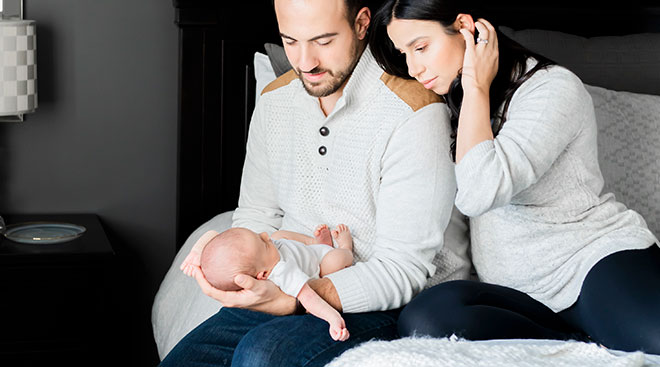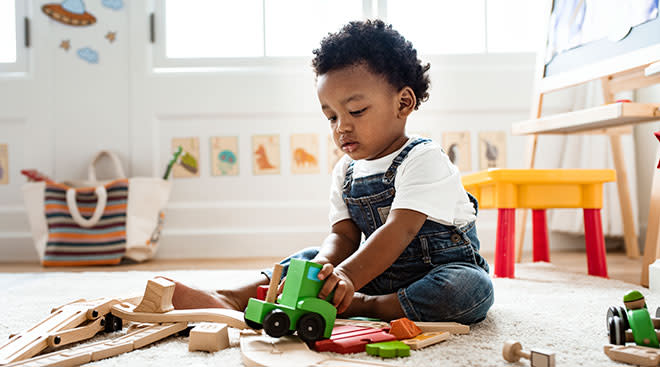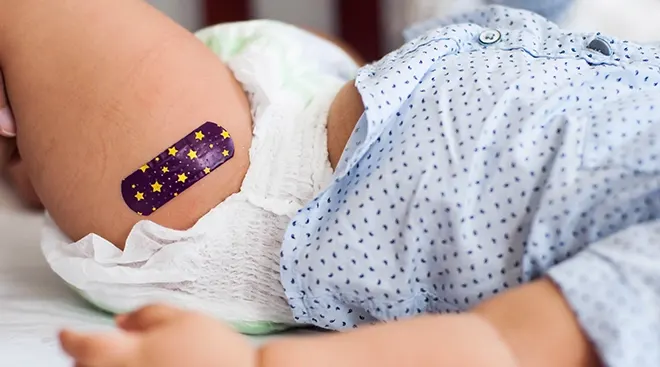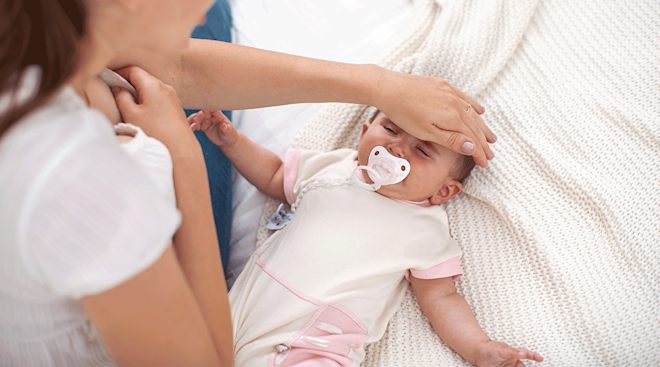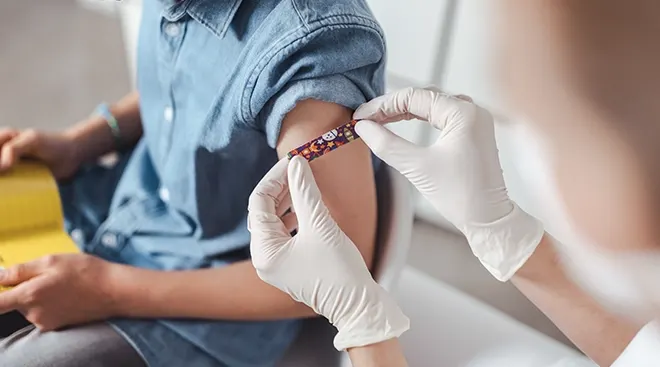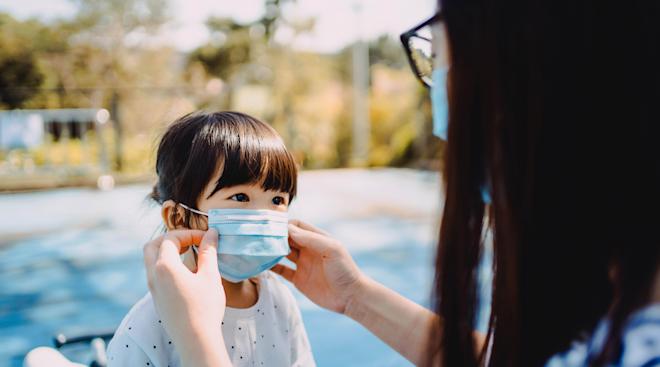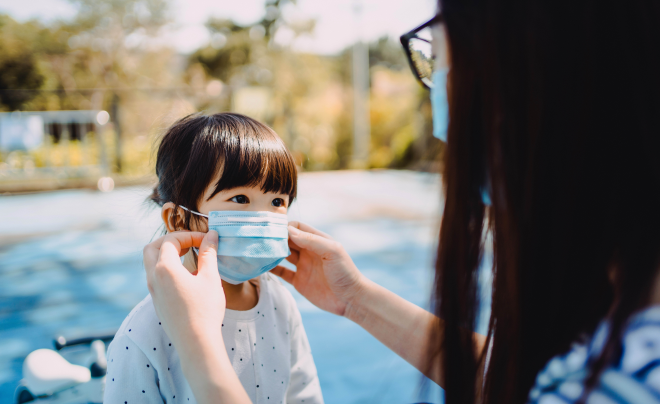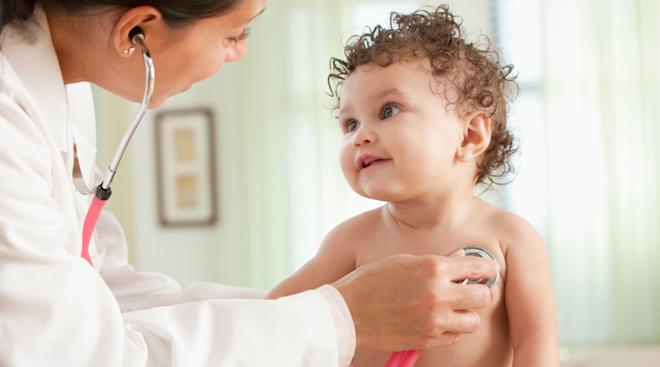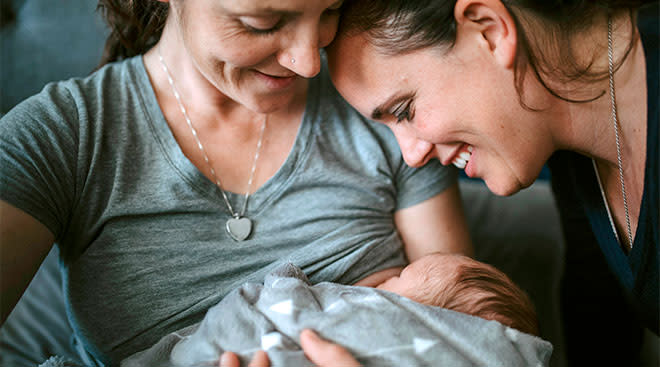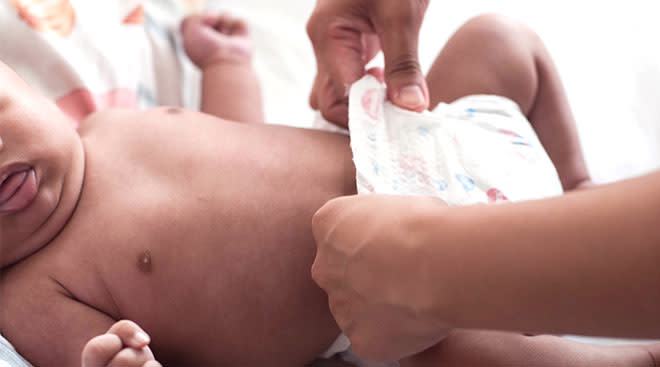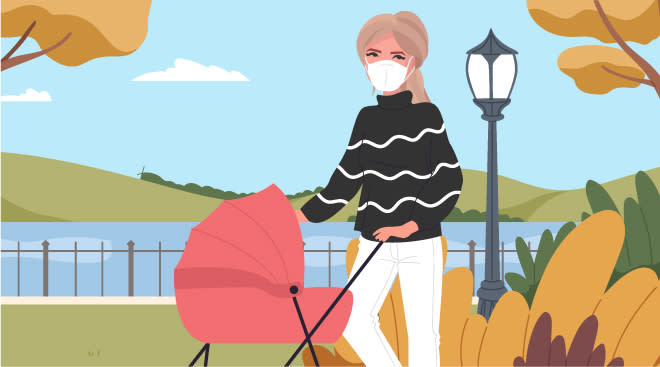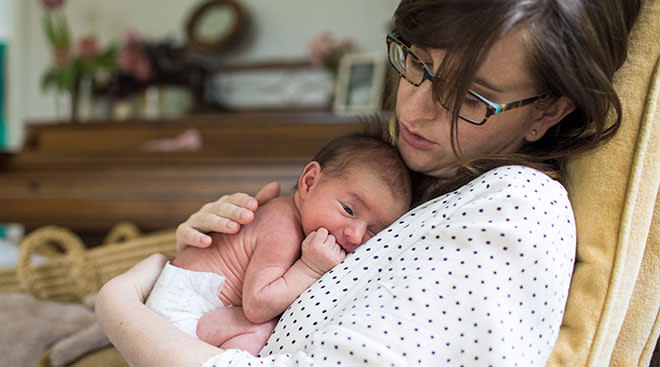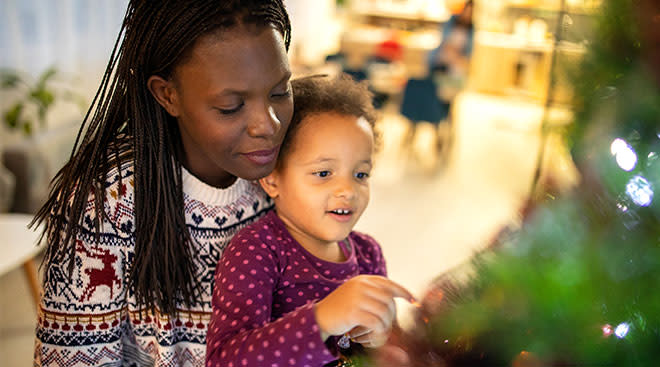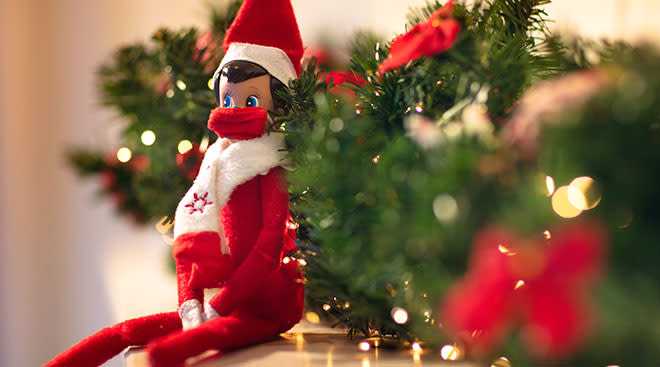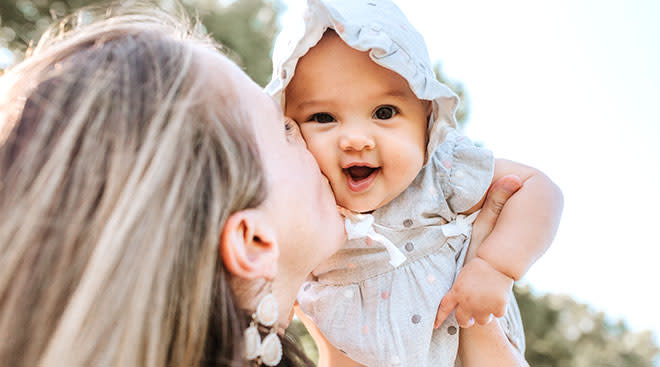How to Protect Your Newborn Against COVID-19
Having a newborn is hard enough under the best of circumstances, but it can feel especially stressful during a global pandemic. If you recently had a baby or are expecting soon, it’s only natural to wonder what exactly you can do to protect your newborn against COVID-19. So we tapped a few experts to offer up some top tips.
This type of coronavirus is new, and there’s a lot that researchers are still learning about it, including how it can affect babies. But based on preliminary data, infants “are at very low risk for COVID-19 infection,” says Jeffrey Loughead, MD, medical director of pediatrics at Lurie Children’s Hospital of Chicago at Northwestern Medicine in Geneva, Illinois. “We don’t know exactly why yet, but of all the confirmed cases in the US, as of April 2, only 1.7 percent are in children less than 18 years and only in a handful in infants,” he says.
However, when compared to older kids, infants may be at greater risk of serious illness if they do contract the virus (which, given that newborns’ immune systems aren’t fully matured, may not come as a huge shock). “We do know that infants under 1 year of age require hospitalization at a higher rate than older children,” says Annmarie Golioto, MD, medical director of the Neonatal Intensive Care Unit at Connecticut Children’s hospital in Hartford, Connecticut.
Certain babies may be at higher risk for coming down with a severe case of COVID-19, including those with underlying health conditions, like lung disease or congenital heart disease, Loughead says. Pre-term babies are also at a higher risk, says Daniel S. Ganjian, MD, a pediatrician at Providence Saint John’s Health Center in Santa Monica, California. “Especially if they’re extremely premature,” he says. “Those babies often have underlying health conditions.”
It’s unclear at this time, but there is some research to suggest that vertical transmission—meaning when a baby contracts the virus in the womb, during birth or through breast milk—may be possible.
A research letter published in JAMA in March 2020 outlined the case of an infant who was born to a mother with a confirmed case of COVID-19. The baby had elevated antibodies to SARS-CoV-2, the virus that causes COVID-19. These elevated antibodies, which were detected in test results two hours after the baby’s birth, suggest the baby was infected in utero, researchers say in the letter, noting it’s “possible,” though unlikely, that the baby was infected after she was born.
However, other studies on whether moms can pass the virus to their babies have had different results. A small case series of nine women from China, as well as another study of 38 women from China, all of whom were positive for COVID-19, showed that all of the infants born to these women were negative for COVID-19. Testing was performed on the placentas, amniotic fluid, breast milk and/or via neonatal throat swabs.
“In theory, vertical transmission could be possible, but it has not been definitively proven thus far,” Golioto says. “It seems that it’s more likely for a newborn to contract COVID-19 after birth if they have been in contact with an infected person.”
One question that’s top of mind for many new and expecting moms: is breastfeeding considered safe right now? So far, research has not shown that the coronavirus can be transmitted through breast milk, which is good news for nursing moms. One study published in The Lancet analyzed the breast milk of nine women with confirmed cases of COVID-19 and found no evidence of the virus in their milk. While it’s not known for certain whether mothers with COVID-19 can spread the virus via breast milk, it is known that breastfeeding can provide babies with important nutrition and protection against many illnesses, Ganjian says, so it’s still recommended for healthy moms.
If you are experiencing COVID-19-related symptoms, UNICEF says it’s still okay to breastfeed, considering the considerable benefits of breastfeeding and the insignificant role nursing plays in the transmission of other respiratory viruses. However, you should take certain precautions, such as wearing a multi-layered mask (or two, one cloth and one surgical) during nursing sessions and washing your hands before and after touching baby. If you’re pumping breast milk, the CDC recommends washing your hands before touching your breast pump and bottle parts, cleaning all parts that come into contact with milk after each use, and consider having someone else who’s feeling healthy give baby the bottle of expressed milk.
So you’ve given birth and are ready to head home from the hospital. Congrats! But how can you best protect your newborn during the trip home? The safest option is to bring baby home in your own car, if you have one. “That’s the best way, so you’re not sharing germs,” Ganjian says. If you don’t have your own car and you have the financial means, renting a car to take your family home is another good option, he adds.
Otherwise, do your best to limit baby’s exposure to others on your way home. “Public transportation is an obvious increased risk over a private car,” says Loughead. “Car services such as Uber and Lyft may be better in that there is only one other person in the car, but you don’t know if they’re sick or who was in the car five minutes before you got in.”
If you use public or semi-public transportation, Loughead recommends using a disinfectant to wipe down the surfaces you may touch, like railings or arm rests. If you have access to hand sanitizer, use it once you get settled and again after you leave the vehicle, he says.
The CDC recommends wearing a multi-layerd mask (or two, one cloth and one surgical) when out in public, so you and your partner should consider donning them if you’ll be taking public transportation or encountering others on your walk to the car. However, the CDC cautions against placing cloth face coverings on children under 2, so don’t put a mask on baby.
If you and other people in your household are healthy and haven’t knowingly been exposed to COVID-19, Golioto recommends doing the following to protect your newborn at home:
While limiting trips outside of your home is a good idea, it’s still okay to head outside with baby for some fresh air, as long as you take the right precautions. “Certainly this is good for everyone, including parents,” Loughead says. Just remember to follow social distancing practices, keeping at least six feet between you, your baby and others, he says. It’s also not a bad idea to pull down your stroller canopy so no one can see your baby (and be tempted to touch), Ganjian says, and to keep baby close to your body in a baby carrier.
If someone in your house is sick or has been exposed to a person with COVID-19, Golioto recommends keeping them as far away from baby as possible.
Another common question among new parents: Is it safe to take baby to in-person doctor’s appointments? “Yes, it’s okay and, in some situations, absolutely necessary,” Loughead says. “Your pediatrician is working hard to bring into the office only those patients that really need to be seen, so listen to their recommendation.”
Pediatricians need to do important tests on newborns, like checking baby for signs of jaundice and healthy weight gain, so it’s crucial to keep up with visits your pediatrician schedules. “Some centers are discharging moms and babies early, so these checks are especially important right now,” Loughead adds.
If you’re worried about taking your newborn into the doctor’s office, call your pediatrician in advance to see what will happen during the scheduled visit. “Sometimes the office is just checking back with you to see how things are going and if the prior-made plans are working,” Loughead says. “In such cases, phone calls, texts or a telehealth visit may be best for all.”
You’re doing everything in your power to keep your newborn safe, but it’s smart to know the COVID-19 symptoms to look out for, in case of possible infection. Coronavirus symptoms are similar in children and adults, according to the Centers for Disease Control and Prevention (CDC). But—good news here—children with confirmed cases of the virus usually have mild, cold-like symptoms. Those can include:
- Fever
- Runny nose
- Cough
- Vomiting
- Diarrhea
If you suspect baby may have contracted COVID-19, Golioto recommends calling your doctor immediately. But don’t panic. “There are other illnesses besides COVID-19 that a baby can come down with, especially in the first month of life, that require prompt attention from their care provider,” she says. Your baby’s doctor should be able to provide personalized care instructions from there and to decide if your infant should be tested for the virus.
About the experts:
Jeffrey Loughead, MD, is the medical director of pediatrics at Lurie Children’s Hospital of Chicago at Northwestern Medicine Central DuPage Hospital in Geneva, Illinois, specializing in neonatology. He also serves as a clinical assistant professor of pediatrics at Northwestern University Feinberg School of Medicine. He earned his medical degree from the University of Cincinnati College of Medicine in 1983 and is board-certified in neonatal-perinatal medicine and general pediatrics.
Annmarie Golioto, MD, IBCLC, FAAP, is the medical director of the Neonatal Intensive Care Unit at Connecticut Children’s hospital in Hartford, Connecticut. She also serves as an associate clinical professor in the department of pediatrics at Yale University School of Medicine and as an assistant professor of pediatrics at the University of Connecticut School of Medicine. Golioto received her medical degree from the University of Medicine and Dentistry of New Jersey in 1996 and is board-certified in neonatal medicine and general pediatrics, as well as certified as a lactation consultant.
Daniel S. Ganjian, MD, is a pediatrician at Providence Saint John’s Health Center in Santa Monica, California. He received his medical degree from the University of California, Irvine, in 2004 and is a member of the Alpha Omega Alpha honor society, a designation given to just 10 percent of American physicians.
Please note: The Bump and the materials and information it contains are not intended to, and do not constitute, medical or other health advice or diagnosis and should not be used as such. You should always consult with a qualified physician or health professional about your specific circumstances.
Plus, more from The Bump:
Navigate forward to interact with the calendar and select a date. Press the question mark key to get the keyboard shortcuts for changing dates.
































